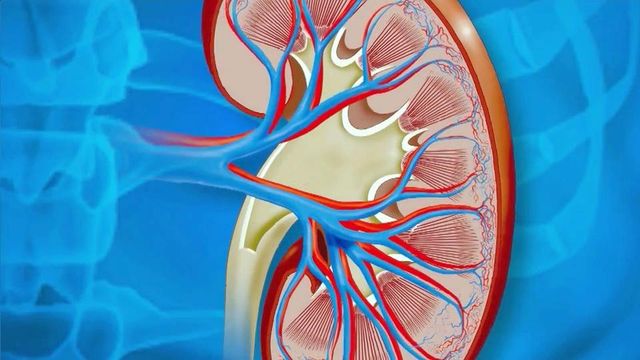Want to live longer? Take care of this organ
No one can live forever, but most people would like to know how they might beat the odds and live longer than 78 years - the average life expectancy. Apart from age, a medical study found that the leading predictor of a long life lies in the health of a specific organ.
Posted — UpdatedDr. Tom Coffman, chief of nephrology at Duke University School of Medicine, says kidney disease is a silent killer. By the time a person notices symptoms of kidney disease, such as fatigue, loss of appetite, unexplained weight loss and swelling in the legs, he or she is already in kidney failure and in need of kidney dialysis.
“The main function (of kidneys) is really to filter toxins out of the blood that are produced by the normal metabolism of the body,” Coffman said. “People get sick primarily because of this accumulation of toxins that aren’t excreted appropriately. But they also have problems with anemia, low blood count, high blood pressure (and) problems with their bones.”
For most people, kidney problems can be avoided, starting with regular physical exams. The two most common causes of kidney disease are high blood pressure and diabetes. If those problems go unaddressed, it stresses and damages the kidneys’ millions of tiny filtering vessels over time.
That's why doctors often ask patients for a urine sample, so they can look for abnormal levels of protein. A standard blood test will reveal two important kidney numbers: creatinine and blood urea nitrogen, which are metabolic waste products that should not exceed certain levels in the blood if the kidneys are healthy.
“One of the things your kidneys do is handle and excrete the salt that you eat in your diet, and when the kidneys are not working properly, you don’t excrete enough salt, your body fluids expand, and that causes your blood pressure to go up,” Coffman said. “Then, blood pressure can go on to damage your kidneys.”
Those who want to live a longer, healthier life should ask their doctor about kidney function, even if the doctor doesn’t mention it first. Besides diet and exercise, doctors say it’s important to avoid taking too much ibuprofen, which can damage the kidneys and lead to kidney failure.
A note from Dr. Allen Mask, WRAL’s Health Team physician:
So ask your doctor "What about my kidneys?" especially if you have hypertension or diabetes. Get a blood test (serum creatinine) and don't be afraid to pee in a cup to have your urine checked. It is one of the best things you can do to save your life.
How much do you know about your health? Take our quiz and see the answers below:
D) Does not matter if you feel fine
F) All of the above except C
E) None of the above are true
D) Take a multivitamin every day
E) Is your 10-year risk of cardiovascular disease greater than 7.5% (ages 40-75)?
5) D - Do you have a family history of diabetes?
• Credits
Copyright 2024 by Capitol Broadcasting Company. All rights reserved. This material may not be published, broadcast, rewritten or redistributed.






